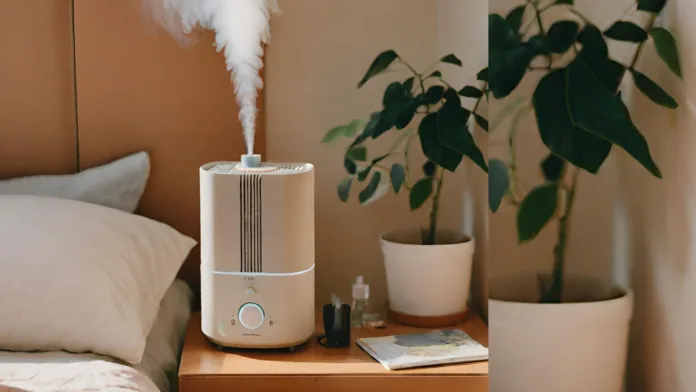Air humidifiers are becoming a popular household accessory as more people are beginning to realize the importance of maintaining proper humidity levels in their homes. But what exactly is an air humidifier and why is it necessary? Let’s dive into the world of humidifiers and understand their use and benefits in detail.
What is an Air Humidifier?
An air humidifier is a household appliance that helps to increase the humidity levels in a room or an entire house. Humidity refers to the amount of water vapor present in the air. Too much or too little humidity can lead to discomfort and health issues. An air humidifier maintains the ideal humidity level by adding moisture to the air, which can range from 30% to 50%.
How does an Air Humidifier work?
Air humidifiers have a water tank or reservoir, which is connected to a wick or filter. When the humidifier is turned on, the water in the tank is drawn up through the wick and dispersed into the air as a fine mist. The mist adds moisture to the air, increasing the humidity level in the room. Some humidifiers also have built-in fans that help to circulate the mist and distribute it evenly throughout the room.
Types of Air Humidifiers:
- Evaporative Humidifiers: These are the most common and affordable type of humidifiers. They have a wick or filter that absorbs water from the tank and a fan that blows air through the filter, creating a fine mist.
- Ultrasonic Humidifiers: These use high-frequency vibrations to create a fine mist of water. They are almost silent and are ideal for bedrooms.
- Steam Humidifiers: As the name suggests, these humidifiers boil water and release steam into the air. They are the most effective at increasing humidity levels but also use the most energy.
- Impeller Humidifiers: Instead of using a wick or filter, these humidifiers use a rotating disc to create a cool mist of water. They are perfect for use in children’s rooms as they are safe and quiet.
Why do we need an Air Humidifier?
- Prevents Dry Skin and Lips: Dry air can cause skin and lip irritation, especially during the colder months. An air humidifier adds moisture to the air, helping to keep your skin and lips hydrated and healthy.
- Relieves Allergy and Asthma Symptoms: Dry air can aggravate asthma and allergy symptoms, making it difficult to breathe. A humidifier adds moisture to the air, making it easier to breathe and reducing symptoms like congestion and coughing.
- Helps with Cold and Flu: Dry air can dry out your nasal passages and throat, making you more susceptible to cold and flu viruses. Adding moisture to the air not only helps to prevent viruses, but it can also soothe congestion and sore throat symptoms.
- Protects Wooden Furniture and Floors: Dry air can cause wooden furniture and floors to crack or shrink. A humidifier can help to prevent this by maintaining proper humidity levels in your home.
- Improves Sleep Quality: Dry air can cause snoring, irritated sinuses, and dry throat, disrupting your sleep. A humidifier can add moisture to the air, reducing snoring and helping you sleep better.
- Preserves Plant Health: Indoor plants require a certain level of humidity to thrive. Dry air can cause the leaves to wilt and the plant to dry out. A humidifier can mimic the natural humidity levels, keeping your plants healthy and vibrant.
- Reduces Static Electricity: Dry air can cause build-up of static electricity, leading to sudden shocks and damage to electronic devices. An air humidifier adds moisture to the air, reducing the build-up of static electricity.
How to choose the right Air Humidifier for your home?
- Room size: The first factor to consider is the size of the room or area you want to humidify. Different humidifiers have different coverage areas, so it’s essential to choose one that is suitable for your space.
- Type of Humidifier: As discussed, there are different types of humidifiers, and each has its pros and cons. Choose the one that best suits your needs and budget.
- Noise level: Consider the noise level of the humidifier, especially if you plan on using it in a bedroom or office. Ultrasonic humidifiers are the quietest, while evaporative humidifiers can be a bit loud.
- Maintenance: Humidifiers require regular maintenance, such as cleaning and changing the filters. Consider the maintenance requirements of the humidifier before making a purchase.
In conclusion, an air humidifier is a useful household accessory for maintaining proper humidity levels in your home. It not only helps to improve your health, but it also protects your furniture and adds to the overall comfort of your living space. With various types and sizes available, there is a humidifier for every individual’s needs. So, if you haven’t already, consider investing in an air humidifier for a healthier and more comfortable living environment.

